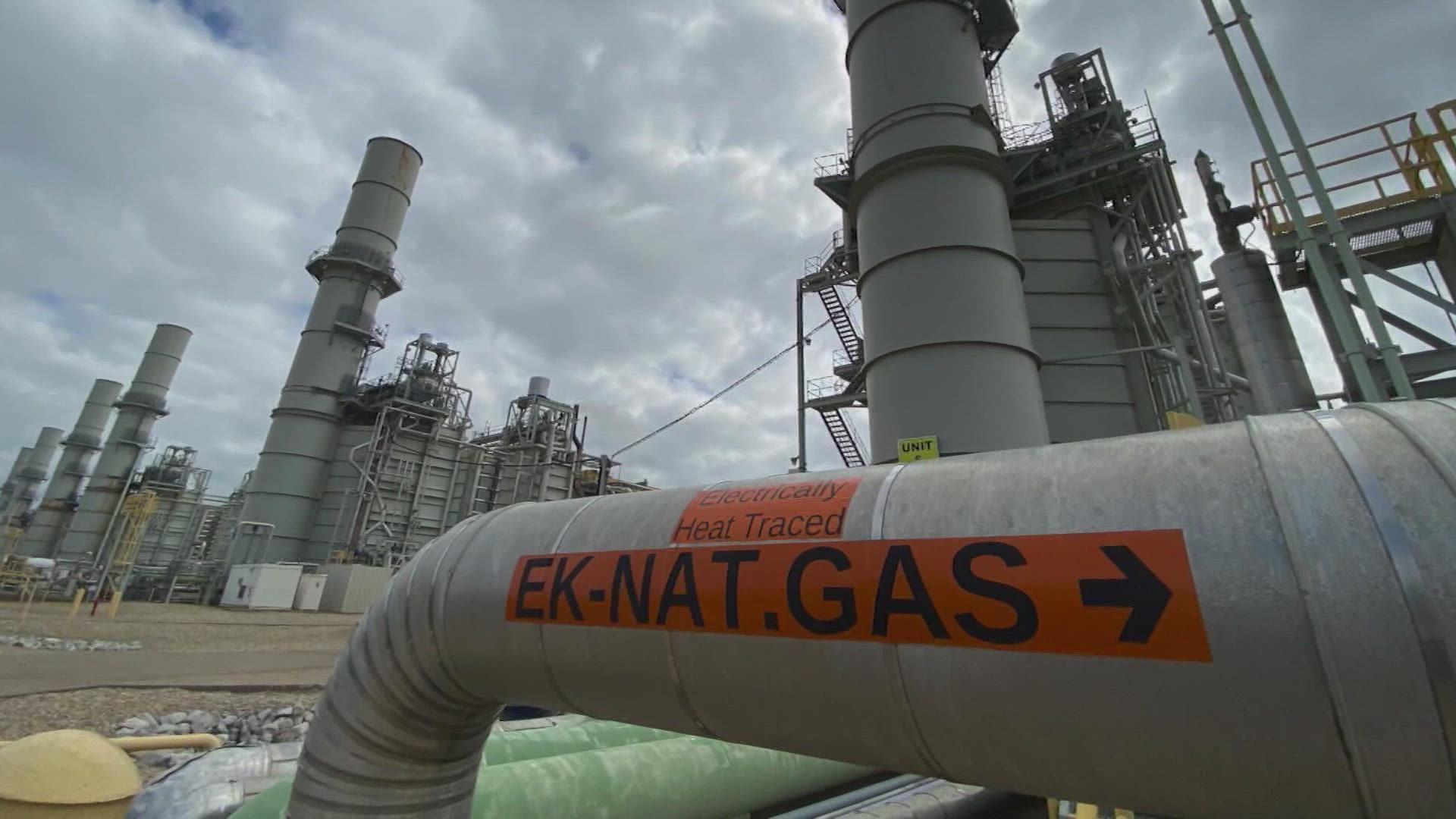HOUSTON — State regulators at the Railroad Commission of Texas approved a revised rule Tuesday to better protect natural gas facilities during a weather emergency.
Unlike hospitals that were largely spared from widespread blackouts during the February freeze, most natural gas facilities had not signed up to be on a critical infrastructure list. As a result, utilities cut their electricity off and many could no longer fuel power generation plants.
“As those generators went offline, that took the power away from more natural gas facilities, and then we had a death spiral,” KHOU 11 energy analyst Ed Hirs said.
Lawmakers passed two bills after the storm tasking the RRC to establish new rules to identify critical natural gas facilities and ultimately require them to winterize equipment. The process did not come without controversy. At a state senate hearing in September, lawmakers complained of a loophole that would have allowed natural gas companies to essentially opt out of making costly winterization upgrades.
“Your rulemaking proposal sucks,” Sen. John Whitmire, D-Houston, said.
“This is the Achilles heel, right here, right now,” Sen. Lois Kolkhorst, R-Brenham, said.
The drafted version of the rule would have allowed natural gas facilities to apply for an exception to the critical list by simply paying a one-time $150 fee and filling out a one-page report claiming they’re “not prepared to operate during a weather emergency.”
“For $150 these facilities can take themselves out of the weatherization requirements,” Hirs said. “It’s an easy way out.”
After the backlash, commissioners narrowed the exception provision. At a meeting in Austin Tuesday, they said “super critical” facilities — those that produce the most volume or pipe directly into power plants — would not be allowed to apply for an exception.
“These leases are so important, so critical, that they will not be allowed to opt-out of the rule, period,” Railroad Commissioner Jim Wright said.
Wright estimated there are about 19,000 super critical facilities that account for 23 billion cubic feet of natural gas per day, about three-quarters of the state’s total supply. They include natural gas producers, pipeline operators, processing facilities and natural gas storage facilities.
Mid-sized facilities, or marginal wells, could still be eligible to opt-out of the critical designation but would be required to present evidence and justification.
“Each of these requests will be scrutinized by the commission,” Wright said.
Wright and Commissioner Christi Craddick also pushed for electrical generation plants to sign more firm supply and delivery contracts, ensuring there is supply at peak demand.
“The Railroad Commission has no authority to require operators to produce has at a specific time,” Wright said. “When it comes to human safety and protecting people’s lives, firm gas contracts and/or storage ought to be required for power generators, even if it’s just for the winter months.”
The approved new rule is only the first step in the winterization of natural gas facilities. State agencies must first complete a statewide mapping project of the electricity supply chain, which is due by September 2022. By law, winterization mandates would follow six months after the mapping is complete.
Hirs said that means a lot of uncertainty for Texas consumers this winter.
“If we roll the roulette wheel of weather and come up with winter storm Uri again this winter, we’re going to have more blackouts,” Hirs said.

